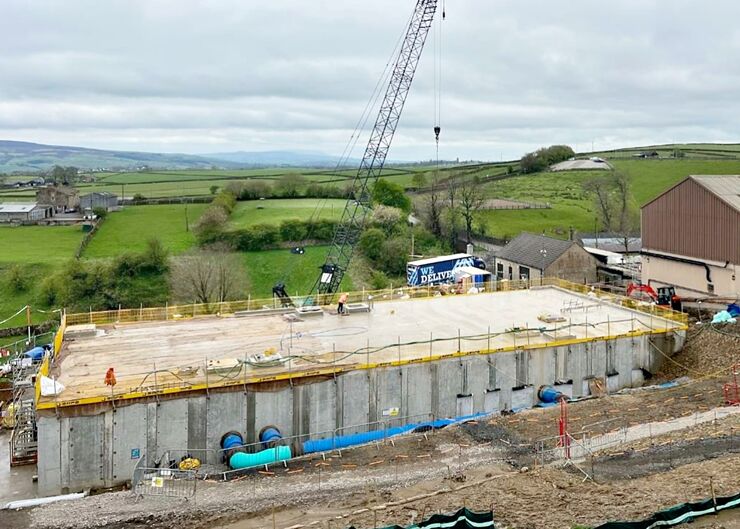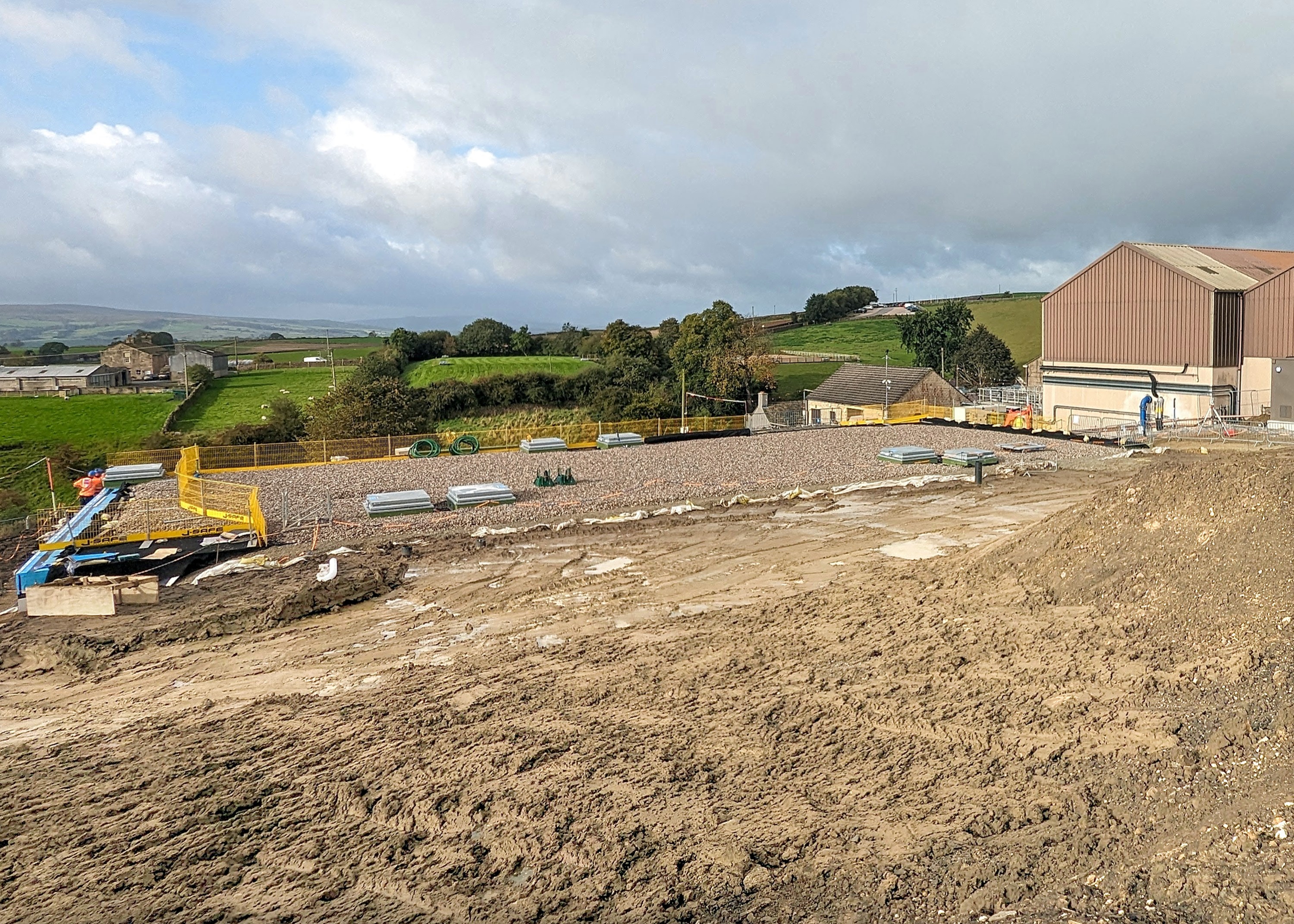
NEC Users’ Group gold member Yorkshire Water has used NEC to improve water quality at its Embsay water treatment works near Skipton in northern England. The client let the £7.7 million design and construction project to its civils framework contractor Mott MacDonald Bentley under an NEC4 Engineering and Construction Contract (ECC) Option A (priced contract with activity schedule) in May 2022.
The 50-year-old, 24 Ml/day water treatment works provides drinking water to over 15,000 people in Skipton and the surrounding areas. The project involved building a new subterranean contact tank with an interstage pumping station and new manganese filters, plus converting the existing contact tank into a start-up-to-waste facility.
Beneficial completion and Drinking Water Inspectorate compliance was achieved on schedule in September 2023, and the remaining landscaping and other elements are due to be completed on time and budget in September 2024. The project has reduced risks to water quality from manganese, cryptosporidium and disinfection byproducts and improved long-term resilience of the local water supply.
Preferred contract
Andy Barrett, Yorkshire Water’s NEC project manager, says ECC Option A was the preferred NEC contract option. ‘This is predominantly because it achieved cost certainty for Yorkshire Water. The scope was clearly defined in the investigation and design phase and in turn allowed the contractor to price the construction risk accurately. Another reason is that we have a clearer and simplified payment process for this option.’
He says the NEC requirement on the project team to act in a ‘spirit of mutual trust and co-operation’ ensured a good working relationship. ‘The NEC contract encouraged a highly collaborative approach between the client and contractor. This was also helped by the contract’s use of clear and concise terminology and the way in which it stimulated communication.’
Barrett says the NEC contract processes of early warnings and early warning meetings supported effective risk management. ‘The early warning process encouraged the client and contractor to log potential future risks so that the project team could work on any mitigation requirements. Each early warning notification was recorded using the CCM contract management system and was followed by detailed discussions during our project team meetings.’
He cites as an example a potential delay in getting the user requirement specification signed. ‘Our engineering design team were reviewing the specification but, due to the size and complexity of the scheme, the sign-off date looked to go past a critical milestone for the order of the system integration sub-contract. The contractor submitted an early warning and the project team evaluated the risks and decided to place the order without the sign-off to mitigate any delays. Without the early warning, the programme would have been impacted and the regulatory date put at risk.’
Barrett says NEC also allowed for effective change management. ‘The contract enabled us to keep track of all changes to the initial contract – including scope, costs and programme – ensuring we achieved the regulatory date on schedule and remained on course for completion on time and budget.’
Lower carbon, lower cost
 The contractor’s design manager Gareth Simpson says early collaboration between the client, contractor and key suppliers found that the proposed scope was unaffordable against the business plan. ‘By applying PAS 2080 carbon design principles, the project team found that the manganese filters and interstage pumping station accounted for over 50% of the scheme’s carbon footprint’.
The contractor’s design manager Gareth Simpson says early collaboration between the client, contractor and key suppliers found that the proposed scope was unaffordable against the business plan. ‘By applying PAS 2080 carbon design principles, the project team found that the manganese filters and interstage pumping station accounted for over 50% of the scheme’s carbon footprint’.
He says design changes were made following an NEC-inspired collaborative value engineering session. ‘As raw water quality levels had improved considerably over the past five years, we were able to show that by optimising chlorine dosing locations the secondary filtration could be removed from the scope.’
Simpson says the omission lowered capital carbon dioxide by 1209 t and operating emissions by 130 t a year. ‘Further carbon and cost savings were achieved by retaining the existing dechlorination dosing downstream of the contact tank, which reduced its required volume, and reusing the existing tank as a start-up-to-waste facility, removing the need to construct a new 3000 m3 tank.’
He says a total of 78% carbon savings were achieved on the original outline design. ‘The resulting cost savings, combined with a further six-week programme saving identified through four-dimensional modelling of the original construction sequence, enabled the scheme to be agreed and delivered within the client’s budget.’
Benefits of using NEC
- NEC requirement to act in a ‘spirit of mutual trust and co-operation’ encouraged a highly collaborative approach between the client and contractor.
- NEC-inspired collaboration resulted in the scope being brought within budget through carbon reduction and value engineering.
- NEC4 ECC Option A provided cost certainty for the client and facilitated the payment process.
- NEC contract processes of early warnings and early warning meetings supported effective risk and change management, ensuring completion on time and budget.




